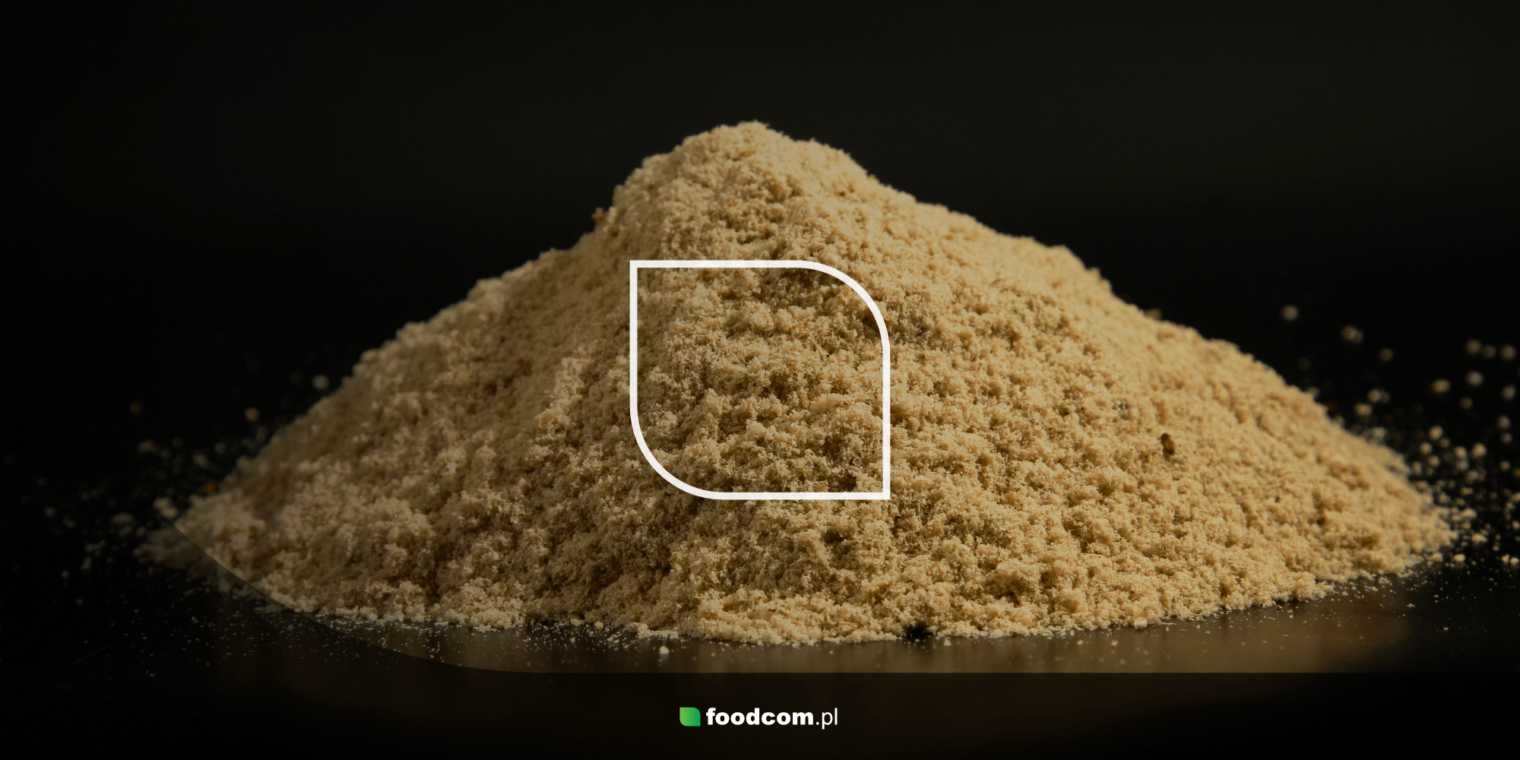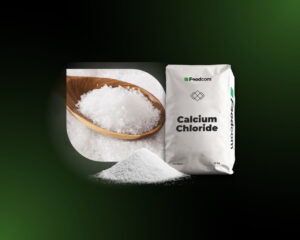Lisez notre aperçu du chlorure de choline, un ingrédient essentiel de l’alimentation animale. Découvrez sa production et ses applications, qui ne se limitent pas à l’alimentation animale. Découvrez ses divers avantages dans l’alimentation animale et plongez dans les projections de développement du marché.
Qu’est-ce que le chlorure de choline ?
La choline est un composé organique classé parmi les vitamines essentielles B4. Le chlorure de choline industriel est produit par la réaction chimique de l’acide chlorhydrique avec l’oxyde d’éthylène et la triméthylamine. Le produit final est disponible sous forme de solution aqueuse ou de poudre. Cette dernière est obtenue en pulvérisant et en mélangeant soigneusement du chlorure de choline aqueux sur un support céréalier, qui est ensuite séché. Le chlorure de choline se présente sous la forme d’une poudre granuleuse fine et lâche, de couleur brun clair et à l’odeur caractéristique. Le chlorure de choline est très hygroscopique et très soluble dans l’eau. Le produit est disponible en différents degrés de pureté exprimés en pourcentage.
Application
Le chlorure de choline est couramment utilisé comme additif alimentaire pour les animaux de ferme, les animaux de compagnie et les animaux exotiques. Ses besoins quotidiens dans l’alimentation animale sont beaucoup plus élevés que ceux des autres vitamines. La supplémentation des aliments en chlorure de choline présente de nombreux avantages pour la santé et les performances des animaux. Plus de 40 % du chlorure de choline disponible sur le marché est utilisé dans l’alimentation des volailles, tandis que les secteurs de l’alimentation des porcs et des animaux de compagnie détiennent chacun environ 25 % des parts de marché. Le reste est utilisé dans l’industrie alimentaire en tant qu’améliorateur de la nutrition et agent d’élimination des graisses. En outre, dans le secteur pharmaceutique, le produit est ajouté aux médicaments utilisés pour les maladies du foie, l’hépatite, la perte de mémoire, la démence et la chorée de Huntington.
Avantages pour l’alimentation animale
Le chlorure de choline joue un rôle crucial dans plusieurs fonctions de l’organisme. Il construit et renforce les membranes cellulaires, régule le métabolisme des graisses dans le foie, soutient le système nerveux, contribue à la formation de méthionine et accélère la synthèse de l’acétylcholine nécessaire à la transmission de l’influx nerveux. Elle est également connue pour augmenter la fertilité, accélérer la prise de poids et réguler la tension artérielle.
La supplémentation en choline est cruciale dans l’alimentation des jeunes poussins, car ils sont incapables de synthétiser ce composé. Dans l’alimentation des volailles, la choline est essentielle pour améliorer les taux de croissance, la qualité des œufs de la portée et la prévention de maladies telles que la pérose et l’hypertrophie hépatique.
Dans l’alimentation des vaches, le chlorure de choline est responsable de l’amélioration du métabolisme des graisses, de la fonction immunitaire, de la fertilité et du rendement de la production laitière. Le produit réduit également le risque de stéatose hépatique et de cétose chez les vaches à haut rendement.
Dans l’alimentation des porcs, le chlorure de choline favorise le taux de croissance global, améliore les performances et la qualité de la viande.
En aquaculture, le produit accélère le taux de croissance des poissons et des crevettes.
Dans l’alimentation des animaux de compagnie, les produits riches en choline sont recommandés pour améliorer les fonctions cérébrales et la santé du foie, ainsi que pour traiter les symptômes de la démence et de la sénilité.
Aperçu du marché
En 2020, le marché mondial du chlorure de choline est estimé à 614,28 millions de dollars. La région Asie-Pacifique a dominé le marché, avec une part de plus de 31 % en 2020, et devrait connaître le taux de croissance le plus rapide, à savoir plus de 5,6 %, au cours des cinq prochaines années. Le développement du marché dans cette région est dû à la consommation accrue de volaille et d’œufs qui stimule la production et popularise le chlorure de choline en tant qu’additif pour l’alimentation animale. La région d’Amérique du Nord se développe également en raison de l’intérêt croissant pour les protéines de haute qualité et de l’augmentation de la demande d’aliments prêts à l’emploi. Les régions du Moyen-Orient et de l’Amérique latine verront probablement l’intérêt croissant pour l’utilisation du chlorure de choline dans les industries pétrolières et gazières.
Au cours des sept prochaines années, le marché devrait croître à un taux de croissance annuel moyen de 5,3 % pour atteindre 736 millions de dollars. Le marché est propulsé par l’augmentation de la demande mondiale de viande de volaille et d’œufs. En outre, le secteur de la nutrition humaine connaît une croissance rapide en raison des avantages pour la santé tels que l’amélioration du fonctionnement du foie, le développement du cerveau et un métabolisme adéquat. Néanmoins, le marché a été sévèrement limité par la baisse de la demande de volaille et de porc pendant la pandémie de COVID-19 et doit récupérer les pertes. En outre, la méconnaissance des avantages du chlorure de choline freine sa popularité.









